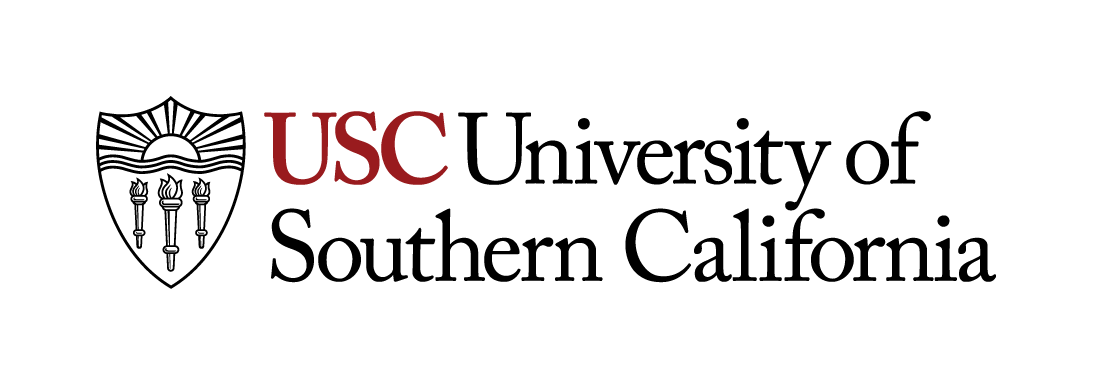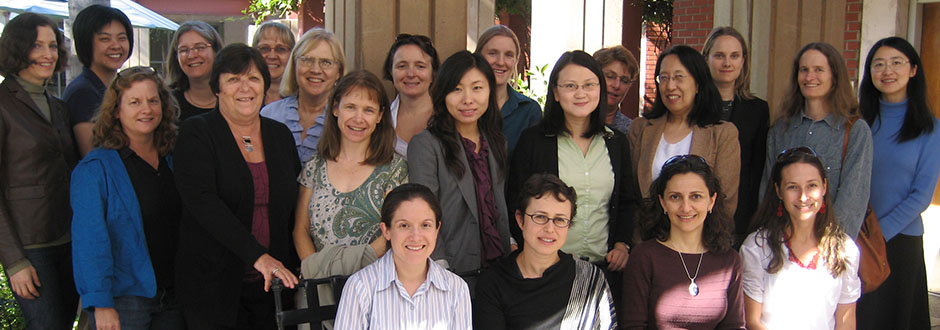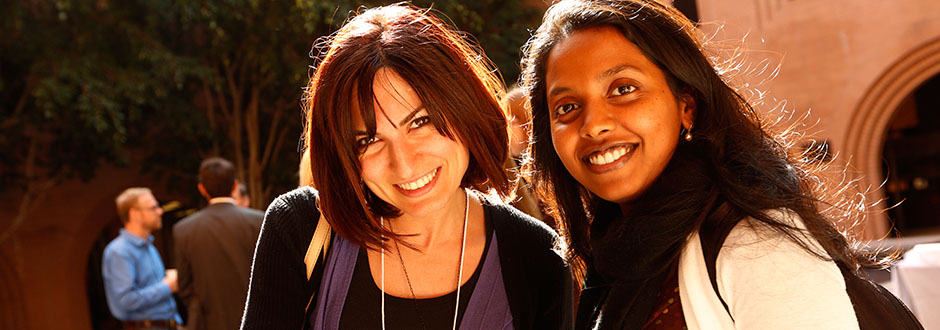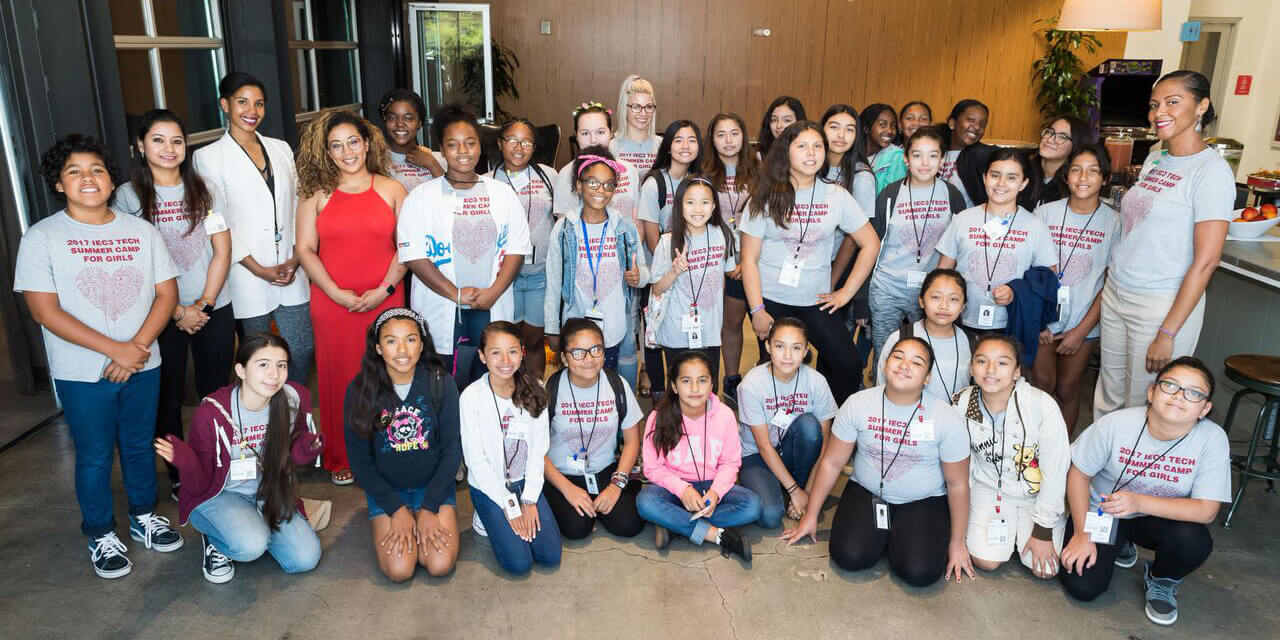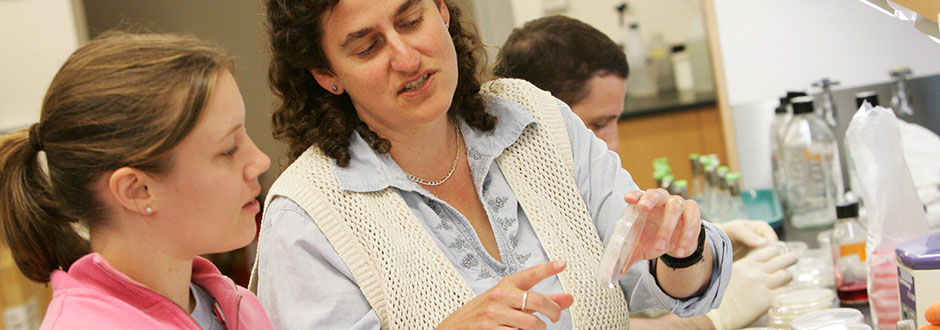Major Support for Current Faculty
Deadline: Application must be submitted by January 30, 2024.
Award Amount: Up to $25,000. Requests for more than $25,000 must be approved by the WiSE Director prior to submission.
Directions: Submit online application.
This competitive program offers awards of up to $25,000 and is aimed at offsetting subtle biases, barriers, and career interruptions that have been shown to hinder the advancement of women faculty in science and engineering at research universities. To be eligible, applicants must have faculty appointments in the departments of the Viterbi School of Engineering or the natural science and math departments of the USC Dana and David Dornsife College of Letters, Arts, and Sciences (Biology, Chemistry, Earth Sciences, Mathematics, and Physics & Astronomy).
Goal: Supplemental funding for major research projects through WiSE offers a way to offset barriers and life-cycle related obstacles that have been shown to slow or interrupt the careers of women faculty. Some of these barriers are subtle and can range from difficulties in meeting teaching and research demands while simultaneously raising a small child, to a reduced chance for new funding opportunities because of a lack of access to a network group. Activities for which funding may be requested vary from case to case. They may include, but are not limited to, supporting a student or a technician during maternity leave, purchasing an equipment item, inviting a collaborator, obtaining teaching release for a semester, providing bridge funding to relieve a temporary funding gap, etc. Faculty are encouraged to consult with the WiSE program office to determine the eligibility of a proposed activity. Funds may also be requested to take advantage of special opportunities that are not funded through regular agencies and programs. Other activities that can be shown to benefit or advance the professional career and reputation of women faculty in science and engineering at USC may also be considered. These may include, among others, organizing a workshop, inviting a distinguished visitor, etc. If a special case arises outside the submission deadline, the WiSE faculty is encouraged to contact the WiSE Program Director to explore options for submission. (For further clarification of guidelines and examples see “Appendix of Frequently Asked Questions”
Eligibility: Any full-time USC faculty member in a WiSE-eligible department is eligible to apply (applicants must have primary faculty appointments in the departments of the Viterbi School of Engineering or the natural science and math departments of the USC Dana and David Dornsife College of Letters, Arts, and Sciences: Biology, Chemistry, Earth Sciences, Mathematics, and Physics & Astronomy). Recipients of a WiSE grant for Major Support are ineligible to apply for another within 3 years of receipt. Proposals should demonstrate a strong justification for how receipt of funds will serve to increase the representation of women in science and engineering. Those contemplating a proposal are encouraged to discuss the eligibility of their proposal with the Director of the WiSE Program, Leana Golubchik at leana@usc.edu or 213-740-0996.
Application Process: Applications materials should be submitted electronically to WiSE using the online system. All documents should be in Adobe PDF format. A complete application includes the following required documents:
- Abstract briefly describing the primary objective of the proposed research or activity and its significance in general terms. (250 words or less)
- Two Page Proposal describing the research or activity, primarily aimed at non-experts. Proposals should be addressed to a broad science and engineering audience of reviewers from across disciplines. (1000 words or less, not including references)
- One Page Supplement providing technical context for experts in the discipline. (500 words or less, not including references)
- Statement of Impact on Career describing how the proposed efforts will specifically impact the faculty member’s career at USC. (500 words or less, to be submitted to the WiSE Program ONLY)
- WiSE Justification describing how the proposed activities will further the goals of the WiSE Program to increase the number of women in science and engineering, such as offsetting barriers and life-cycle related obstacles. (500 words or less, to be submitted to the WiSE Program ONLY)
- Sources of Support listing other sources of internal and external support awarded during the last three years or pending. For each, provide the title, period, amount, sponsor, and describe the relationship of each to the current proposal. (No page restriction)
- Budget outlining proposed expenses. Provide a budget explanation on a separate page: clarifying the role of any individuals for whom salary support is requested; explain how travel funds will be used; justify the need for any equipment. (One page plus one explanatory page)
- Applicant’s up-to-date curriculum vitae
- Optional list of recommend reviewers and/or a separate list of anyone perceived as NOT qualified by the applicant to act as a reviewer. (250 words or less)
- Statement of Support from the applicant’s Dean that endorses the proposed research, affirms the availability of necessary facilities and space to perform the proposed research, and affirms that the applicant satisfies the requirements for submission.
- Statement of Support from the applicant’s Department Chair that affirms the availability of necessary facilities and space to perform the proposed research. If funding is awarded, either the applicant’s Department Chair or the Dean of Research of the applicant’s school must state the assumed responsibility for any overdrafts.
Additional Information:
Reviews
Completion and submission of all required elements of the proposal including any institutional review committee’s need to approve the research (i.e. human subjects, warm blooded animals, human blood/infectious diseases, recombinant DNA). Review must be requested prior to application submission and approval received prior to granting final funding.
Grant Conditions
- Faculty applicants should seek support from external sponsors concurrently and not rely exclusively on the WiSE program.
- Requests in excess of $25,000 in total funding must be approved by the WiSE Director prior to submission.
- The duration of the grant can range from one to three years.
- Permanent equipment required for a research project and purchased with WiSE funds becomes the property of the University.
- Awards will include fringe benefits, but awards are not assessed indirect costs.
- Awards are not transferable to other institutions.
Notification
If an award is approved by the WiSE Advisory Board and the Provost’s Office, faculty will be notified of the amount and conditions of the award by May 1. Copies of the award notification will be sent to the appropriate department chairs and deans.
Reporting and Acknowledgement
Awardees must submit a brief report (including an accounting of expenditures and any external support received) within thirty days of termination of the grant period. These reports will be evaluated by the WiSE Advisory Board and, with the investigator’s permission, portions of the report may be reprinted to build support for the Program among the University community. Any publication or creative endeavor arising from work supported by the WiSE grant should acknowledge the “WiSE Program at the University of Southern California.”
Selection Process and Criteria
Proposals submitted to the WiSE Program will be reviewed by the WiSE Advisory Board. Normally, proposals will be reviewed by USC faculty members. However, if the necessary expertise does not exist on campus, external reviewers may be engaged. In reviewing proposals, the committee will consider:
- The intrinsic quality of the proposed research or activity
- The merit of the WiSE Justification
- Evidence that the project can be successfully completed
- The likelihood that the activities might lead to external funding
- The possibility that the activities will open avenues for further investigation
- The extent to which the proposed activities serve to advance the goals of the WiSE program. (The first two criteria listed in bold are the most important).
Appendix: Frequently Asked Questions
Q: Among the several categories of proposed activities, what are the funding priorities?
A: Those activities that can help offset barriers and life-cycle related obstacles and those related to opportunities that arise unexpectedly and are therefore not funded through regular agencies, have the highest priority. Other activities will be considered, but prior contact with the WiSE Program Director is strongly advised before submitting a proposal.
Q: What types of activities may fall under the category of those “that can help offset barriers and life-cycle related obstacles”?
A: Examples of the activities intended by this language include:
- Teaching release for a semester
- Hiring a technician during maternity leave
- Providing bridge funding during a funding gap related to family-career balance
- Providing seed money for a new initiative
- Providing seed money to recover from a career interruption
Q: The guidelines state that the program can fund “activities related to opportunities that arise unexpectedly and are therefore not funded through regular agencies.” Which kind of activities fall under this category?
A: Examples of the activities intended by this language include:
- Inviting a collaborator who can enhance the research program
- Help in hiring a postdoctoral fellow with special expertise who has just become available
- Purchase a new piece of equipment that will assist in the next funding cycle
Q: The guidelines state that the program will consider proposals for “activities that can be shown to advance the professional standing and reputation of women faculty in science and engineering at USC.” Which activities fall under this category?
A: These activities should be aimed at reducing the so-called “leaky pipeline” to women’s advancement in academia. Original approaches to solving the problem of under-representation of women are encouraged. Examples of the activities intended by this language include:
- Invite successful faculty for longer visits, which include specific plans for meetings with other women faculty, postdocs, and graduate students
- Fund workshops on how to help faculty advance into leadership positions
- Fund workshops on career planning for graduate students and postdoctoral fellows
Q: How many proposals will be funded each year? A: The amount of funding varies from year to year, depending on the availability of funds and other program commitments. At the most, we expect to fund three proposals per year at approximately $25,000/each. However, program priorities may not allow us to fund any proposals in a given year. Funding duration may last between one and three years. An applicant who has received funding cannot apply again for three years. Q:Even after reading through the guidelines, I am not sure whether my proposal is eligible. Who can I contact?
A: Please contact the WiSE Program Director, Leana Golubchik at leana@usc.edu or 213-740-0996 or the WiSE Program Office at wiseprog@usc.edu or 213-740-0996.
2022-2023
Malancha Gupta, Viterbi School of Engineering, Chemical Engineering and Materials Science
Mengjie Yu, Viterbi School of Engineering, Electrical and Computer Engineering
2021-2022
Emily Cooperdock, USC Dornsife, Earth Sciences
2020-2021
Eun Ji Chung, Viterbi School of Engineering, Biomedical Engineering
Irene Chiolo, USC Dornsife, Biological Sciences
2019-2020
Lindsay Schier, USC Dornsife, Biological Sciences
Juhi Jang, USC Dornsife, Mathematics
2018-2019
Sami Assaf, USC Dornsife, Mathematics
Michelle Povinelli, Viterbi School of Engineering, Electrical Engineering
2017-2018
None awarded.
2016- 2017
Elena Pierpaoli, USC Dornsife, Physics and Astronomy
2015-2016
Mary Eshaghian-Wilner, Viterbi School of Engineering, Electrical Engineering
2014-2015
Urbashi Mitra, Viterbi School of Engineering, Electrical Engineering
Rosa di Felice, USC Dornsife, Physics and Astronomy
2013-2014
None awarded.
2012-2013
Minlan Yu, Viterbi School of Engineering, Computer Science
2011-2012
Sarah Feakins, USC Dornsife, Earth Sciences
Meghan Miller, USC Dornsife, Earth Sciences
Ellis Meng, Viterbi School of Engineering, Biomedical Engineering
2010-2011
Karla Heidleberg, USC Dornsife, Marine and Environmental Biology
2009-2010
Eva Kanso, Viterbi School of Engineering, Aerospace and Mechanical Engineering
Alice Parker, Viterbi School of Engineering, Electrical Engineering – Systems
Astrid Schnetzer, USC Dornsife, Marine and Environmental Biology
Katherine Shing, Viterbi School of Engineering, Chemical Engineering and Materials Science
2008-2009
Sarah Bottjer, USC Dornsife, Neurobiology
Suzanne Edmands, USC Dornsife, Marine and Environmental Biology
Lorraine Turcotte, USC Dornsife, Kinesiology
Amy Rechenmacher, Viterbi School of Engineering, Civil and Environmental Engineering
2007-2008
Feixue Fu, USC Dornsife, Biological Sciences
Alice Parker, Viterbi School of Engineering, Electrical Engineering
2006-2007
Maria Todorovska, Viterbi School of Engineering, Civil and Environmental Engineering
Jennifer Swift, Viterbi School of Engineering, Civil and Environmental Engineering
2005-2006
Maria Yang, Viterbi School of Engineering, Industrial and Systems Engineering
Emily Liman, USC Dornsife, Biological Sciences
Anna Krylov, USC Dornsife, Chemistry
Jill McNitt-Gray, USC Dornsife, Kinesiology
2004-2005
Suzanne Edmands, USC Dornsife, Biological Sciences
Lorraine Turcotte, USC Dornsife, Kinesiology
Katherine Shing, Viterbi SoE, Chemical
